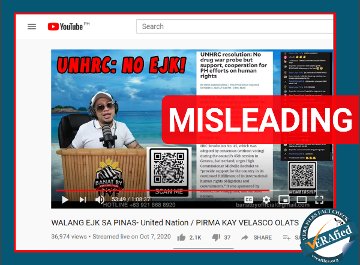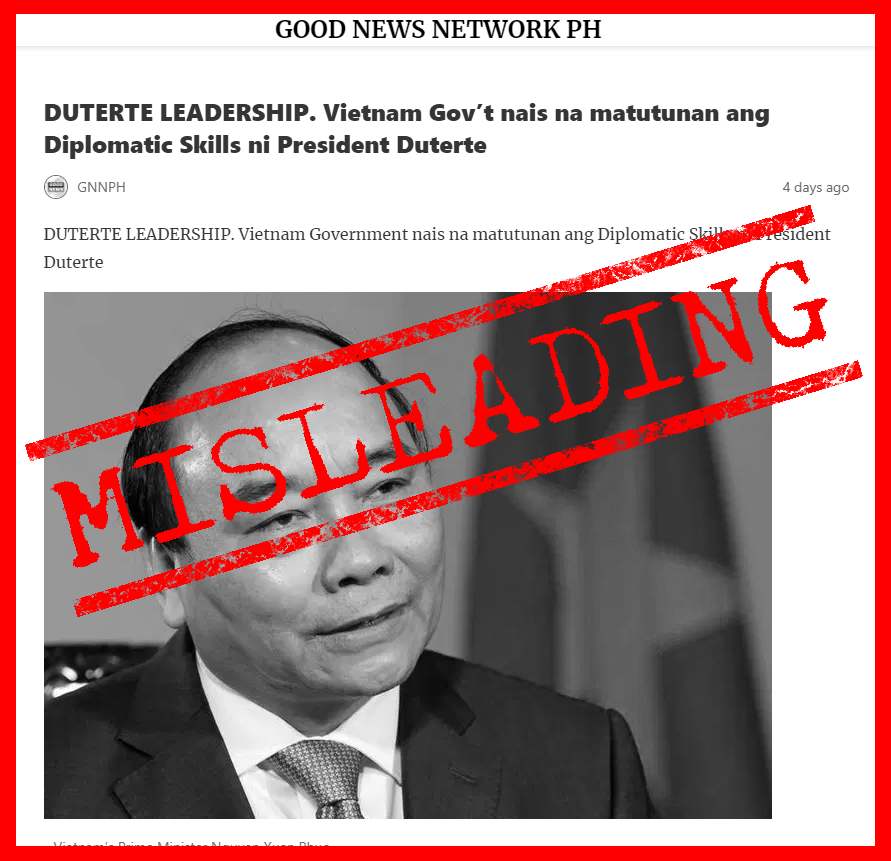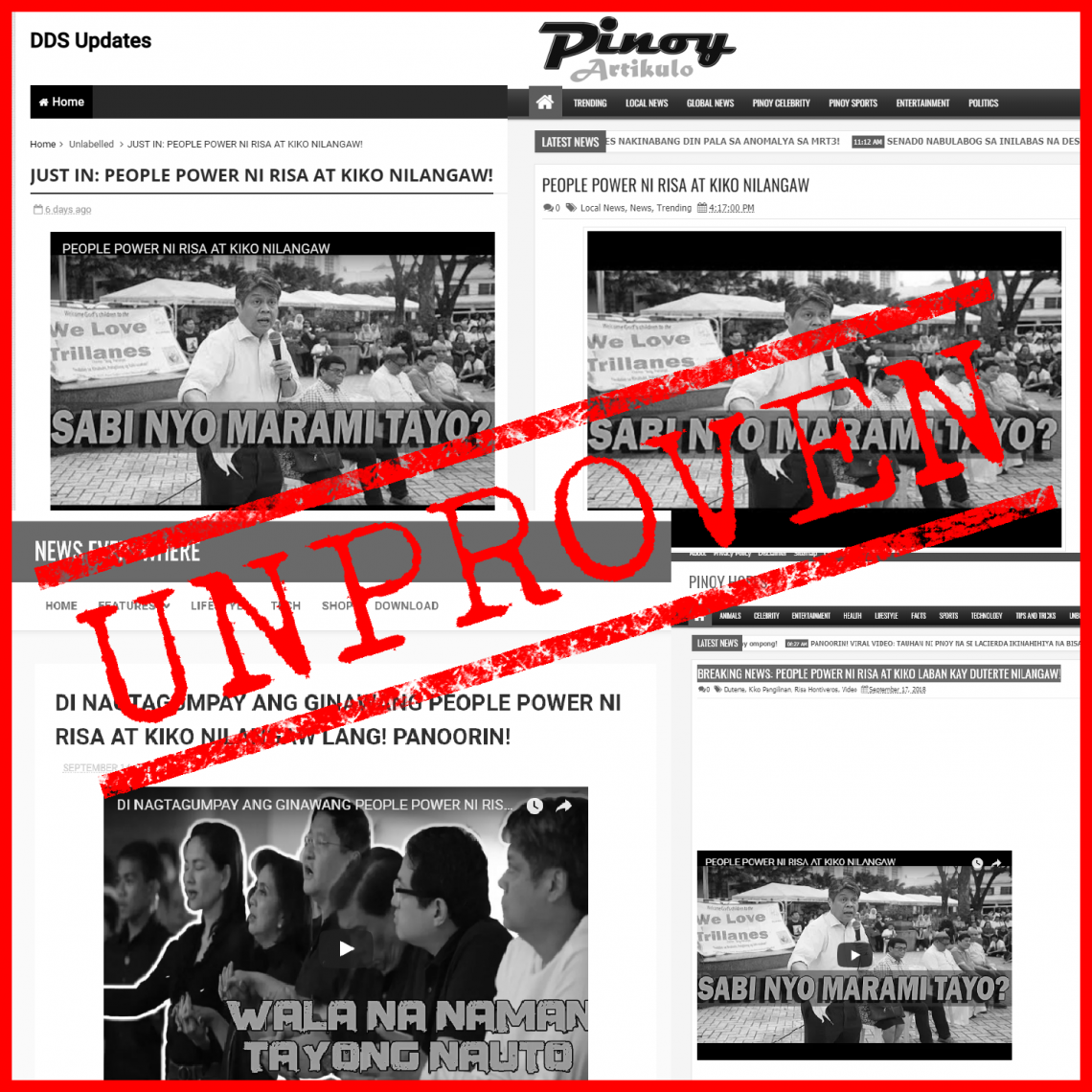Video blogger (vlogger) Byron Cristobal, a Duterte and Marcos supporter better known as Banat By, misleadingly claimed that the adoption of a resolution calling for the improvement of the human rights situation in the Philippines by the United Nations Human Rights Council (UNHRC) proved there were no extrajudicial killings in the country.
STATEMENT
In his YouTube vlog running over an hour, Cristobal cited an Inquirer.net article about the UNHRC adoption of the resolution on Oct. 7 at its 45th session. He said:
“Ito (Here): No EJK. Oh ayan ah (There.). Ito pala iyon (This is it)…Iyan iyong (This is the) ‘resolution, which was adopted by consensus (without voting) during the council’s’… ‘provide support for the country in its continued fulfillment of its international human rights obligations and commitment(s).’ Sa madaling salita, wala naman silang nakitang EJK (In short, they didn’t find any EJK). Yari sila (They’re finished).”
Source: Banat By official YouTube account, WALANG EJK SA PINAS-United Nation (sic) /PIRMA KAY VELASCO OLATS, Oct. 7, 2020, watch from 53:27 to 53:53
As of Oct. 15, Cristobal’s video has been viewed over 36,630 times. It could have reached more than 6.8 million social media users, with Facebook pages Mocha Uson Blog (which he co-manages), DDS News, and his own Banat By generating the most traffic for the video.
FACT
The Oct. 7 UNHRC resolution did not absolve the Philippines from alleged cases of extrajudicial killings. It called for “technical cooperation and capacity building” between the Philippine government and the UN Office of the High Commissioner for Human Rights (OHCHR) to address allegations of human rights abuses, including arbitrary detention and extrajudicial killings, in the country. (See UN body offers technical aid to Duterte admin to improve PH human rights situation)
The resolution, proposed jointly by Iceland and the Philippines, contained a number of proposals to be implemented by the OHCHR and the Philippines until 2022. Among those proposals, the UNHRC encouraged the government to address the issues and challenges raised by the OHCHR in its mandated assessment report in June into the situation of human rights in the country.
The latest resolution and the OHCHR’s report stemmed from another resolution proposed by Iceland in 2019 that mandated the OHCHR to examine and report about the human rights situation in the Philippines due to allegations of abuses, including extrajudicial killings. UN High Commissioner for Human Rights Michelle Bachelet presented her office’s report at the 44th UNHRC session in June.
In its report, the OHCHR said there were “widespread and systematic” killings in the country which mainly targeted alleged drug suspects under President Rodrigo Duterte’s “war on drugs.” It noted that local accountability mechanisms have failed in resolving 8,663 drug-related deaths as of June 2020, but human rights groups estimated that the number could be triple the official count.
In view of its findings, the OHCHR recommended a number of reforms to the Philippine government to address alleged human rights violations, including the call to:
“Repeal Philippine National Police Command Memorandum Circular No.16-2016; cease ‘Project Tokhang,’ and urgently put an end to extrajudicial killings, arbitrary detention and other violence targeting suspected drug offenders and people using drugs; and abolish the compilation and publication of ‘drug watch lists’ at all administrative levels.”
Source: Office of the High Commissioner for Human Rights, Situation of human rights in the Philippines, June 29, 2020
The OHCHR added that the Philippine government “has cited only one case” — the conviction of three Caloocan police officers who murdered 17-year-old Kian Lloyd Delos Santos in 2017 — that had been resolved, out of thousands of drug-related deaths since July 2016. Human rights groups, such as Amnesty International and the Commission on Human Rights, classify Delos Santos’ case as an extrajudicial killing.
The OHCHR report prompted both local and international human rights groups to renew their call for an international independent investigation on human rights violations in the country. But the groups criticized the UNHRC on its latest resolution for not ordering an international probe despite a similar call in June by 11 UN human rights experts.
Justice Secretary Menardo Guevarra announced during the 44th session of the UNHRC in June the creation of a new inter-agency panel that will judiciously review 5,655 anti-drug operations where deaths occured. He said the panel will present a report in November. (See HR groups question credibility of PH review panel for ‘war on drug’ killings – Vera Files)
Rights violations under Duterte’s war on drugs have also been the subject of an ongoing preliminary examination by Prosecutor Fatou Bensouda of the International Criminal Court (ICC) since 2018. Bensouda is expected to conclude the process in late 2020 to determine whether she will proceed to a formal investigation on alleged crimes against humanity committed by Duterte and some of his officials in implementing his anti-drug campaign.
(See VERA FILES FACT SHEET: ICC’s preliminary examination update on drug war, explained)
The Rome Statute, an international agreement that created the ICC, defines crimes against humanity as the intentional commission of acts in a ”widespread or systematic” manner in pursuant of a state or organizational policy, such as murders or enforced disappearances, against civilians. Duterte and several of his close allies have publicly encouraged killing drug “lords” and “addicts” in the past.
(See VERA FILES FACT CHECK: How many drug addicts are there in PH? Let Duterte do the counting and VERA FILES FACT CHECK YEARENDER: The Duterte chamber: Allies echo the president’s ‘kill’ mantra)
The Philippines, however, is no longer a party to the statute and the ICC after it officially withdrew in March 2019. Duterte ordered the withdrawal a month after Bensouda launched her probe in February 2018. (See The Philippines and the International Criminal Court – Vera Files)
Sources
United Nations, A/HRC/45/L.38, Accessed Oct. 11, 2020
Banat By official YouTube account, WALANG EJK SA PINAS-United Nation (sic) /PIRMA KAY VELASCO OLATS, Oct. 7, 2020
United Nations, A/HRC/45/L.38 Vote Item:10 – 38th Meeting, 45th Regular Session Human Rights Council, Accessed Oct. 7, 2020
Inquirer.net, UNHRC resolution: No drug war probe but support, cooperation for PH efforts on human rights, Oct. 7, 2020
Office of the High Commissioner on Human Rights, Situation of human rights in the Philippines, June 29, 2020
United Nations, A/HRC/41/L.20, July 5, 2019
Office of the High Commissioner Rights, 44th session of the Human Rights Council<br> Enhanced interactive dialogue on the situation of human rights in the Philippines, June 30, 2020
Department of Justice, Statement on the enhanced interactive dialogue on human rights in the Philippines at the on-going 44th session of the United Nations Human Rights Council in Geneva, Switzerland, July 2, 2020
Amnesty International, Statement of the Commission on Human Rights on the court’s decision on the Kian Loyd Delos Santos case, July 8, 2019
Commission on Human Rights, Statement of the Commission on Human Rights on the court’s decision on the Kian Loyd Delos Santos case, Dec. 3, 2018
Groups call for international probe of Philippine human rights situation
- Karapatan, Karapatan: UN report on PH rights situation shows why anti-terror bill should be junked, June 5, 2020
- Amnesty International, UN report on the Philippines shows urgent need for international investigation, June 4, 2020
- Human RIghts Watch, UN: Human Rights Council Should Act on Philippines, Aug. 27, 2020
- United Nations Office of the High Commissioner for Human Rights, Philippines: UN human rights experts renew call for an on-the-ground independent, impartial investigation , June 25, 2020
Groups criticized the UNHRC resolution
- Amnesty International, groups Philippines: UN resolution a missed chance for justice but scrutiny continues, Oct. 7, 2020
- Karapatan, Nothing to fear if there is nothing to hide: Karapatan challenges PH gov’t to allow access to UN rights mechanisms, Oct. 7, 2020
- Human Rights Watch, UN Human Rights Council Adopts 2nd… – Human Rights Watch Philippines, Oct. 7, 2020
International Criminal Court, The Office of the Prosecutor, Accessed Oct. 11, 2020
International Criminal Court, Statement of the Prosecutor of the International Criminal Court, Fatou Bensouda, on opening Preliminary Examinations into the situations in the Philippines and in Venezuela, Feb. 8, 2018
International Criminal Court, Rome Statute, Accessed Oct. 11, 2020
Presidential Communications Operations Office, Palace confirms PH withdrawal from ICC over prosecutor’s violation of complementarity rule, March 15, 2018
(Guided by the code of principles of the International Fact-Checking Network at Poynter, VERA Files tracks the false claims, flip-flops, misleading statements of public officials and figures, and debunks them with factual evidence. Find out more about this initiative and our methodology.)





